brief introduction
When talking about distributed, we must think of distributed configuration center, distributed log, distributed link tracking, etc
In distributed deployment, businesses often have many configurations. For example, applications need to read some configuration information during startup and operation. Configuration basically accompanies the whole life cycle of applications, such as database connection parameters and startup parameters, which need to be maintained and configured, but it is impossible to log in to configure one server at a time
Today, I want to share with you the distributed configuration center Apollo:
Apollo (Apollo) is a distributed configuration center developed by Ctrip framework department. It can centrally manage the configuration of different application environments and clusters. After the configuration is modified, it can be pushed to the application end in real time. It also has standardized permissions, process governance and other characteristics. It is suitable for micro service configuration management scenarios.
build
There are two building methods in the official documents. One is to download the source code and the other is to use Docker or K8S. Today we use Docker to build. After all, Docker is more friendly to developers.
If Mysql service is available, it is recommended to use Mysql service or cloud service RDS as the database. After all, the data is priceless.
version: "3"
services:
apollo-configservice: #Config Service provides functions such as reading and pushing configuration, and the service object is the Apollo client
image: apolloconfig/apollo-configservice:1.8.1
restart: always
#container_name: apollo-configservice
volumes:
- ./logs/apollo-configservice:/opt/logs
ports:
- "8080:8080"
environment:
- TZ='Asia/Shanghai'
- SERVER_PORT=8080
- EUREKA_INSTANCE_IP_ADDRESS=xxx.xxx.xxx.xxx
- EUREKA_INSTANCE_HOME_PAGE_URL=http://xxx.xxx.xxx.xxx:8080
- SPRING_DATASOURCE_URL=jdbc:mysql://xxx.xxx.xxx.xxx:3306/ApolloConfigDB?characterEncoding=utf8&serverTimezone=Asia/Shanghai
- SPRING_DATASOURCE_USERNAME=root
- SPRING_DATASOURCE_PASSWORD=MysqkPassWord!
apollo-adminservice: #Admin Service provides configuration modification, publishing and other functions. The service object is Apollo Portal (Management Interface)
image: apolloconfig/apollo-adminservice:1.8.1
restart: always
#container_name: apollo-adminservice
volumes:
- ./logs/apollo-adminservice:/opt/logs
ports:
- "8090:8090"
depends_on:
- apollo-configservice
environment:
- TZ='Asia/Shanghai'
- SERVER_PORT=8090
- EUREKA_INSTANCE_IP_ADDRESS=xxx.xxx.xxx.xxx
- SPRING_DATASOURCE_URL=jdbc:mysql://xxx.xxx.xxx.xxx:3306/ApolloConfigDB?characterEncoding=utf8&serverTimezone=Asia/Shanghai
- SPRING_DATASOURCE_USERNAME=root
- SPRING_DATASOURCE_PASSWORD=MysqkPassWord!
apollo-portal: #Management interface
image: apolloconfig/apollo-portal:1.8.1
restart: always
container_name: apollo-portal
volumes:
- ./logs/apollo-portal:/opt/logs
ports:
- "8070:8070"
depends_on:
- apollo-adminservice
environment:
- TZ='Asia/Shanghai'
- SERVER_PORT=8070
- EUREKA_INSTANCE_IP_ADDRESS=xxx.xxx.xxx.xxx
- APOLLO_PORTAL_ENVS=dev
- DEV_META=http://xxx.xxx.xxx.xxx:8080
- SPRING_DATASOURCE_URL=jdbc:mysql://xxx.xxx.xxx.xxx:3306/ApolloPortalDB?characterEncoding=utf8&serverTimezone=Asia/Shanghai
- SPRING_DATASOURCE_USERNAME=root
- SPRING_DATASOURCE_PASSWORD=MysqkPassWord!
As can be seen from the above docker-compose.yaml, there are three services, namely:
-
Config Service provides functions such as reading and pushing configuration, and the service object is the Apollo client
-
Admin Service provides configuration modification, publishing and other functions. The service object is Apollo Portal (Management Interface)
-
Portal (administration interface)
If you want to know how they work, it is recommended to check the official documents
The logs are mounted to the external. / logs directory
You can see that the deployment of Mysql is not given above. If you need to deploy Mysql using a container, please refer to docker-compose.yaml below
version: '3'
services:
mysql: # myslq database
image: 'mysql/mysql-server'
container_name: 'mysql'
restart: always
command: --character-set-server=utf8mb4 --collation-server=utf8mb4_unicode_ci --lower-case-table-names=1
environment: #environment variable
MYSQL_ROOT_HOST: "%"
MYSQL_ROOT_PASSWORD: password
MYSQL_USER: brook
MYSQL_PASSWORD: password
ports:
- "3306:3306"
The above mysql docker-compose.yaml is only for testing
Initialize database
initialization
[apolloconfigdb.sql]( https://github.com/apolloconfig/apollo/blob/master/scripts/docker-quick-start/sql/apolloconfigdb.sql )And [Apollo PORTALDB. SQL]( https://github.com/apolloconfig/apollo/blob/master/scripts/docker-quick-start/sql/apolloportaldb.sql )
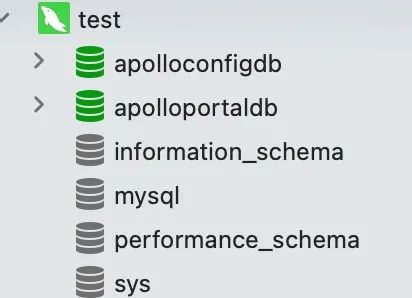
After the database is initialized, remember to modify eureka.service.url of the serverconfig table in the Apollo config DB library, otherwise the Apollo admin service cannot be registered with Eureka

After modification, switch to the Apollo docker-compose.yaml directory and use
docker-compose up -d #Start the three services in the file and run in the background
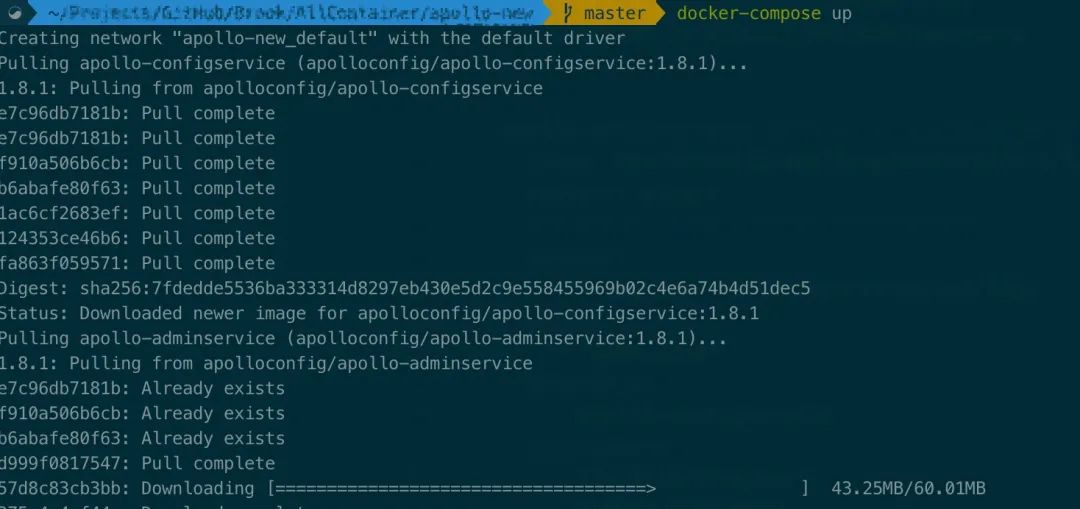
View startup
docker-compose ps

visit http://10.0.0.53:8070/ #Apollo management end
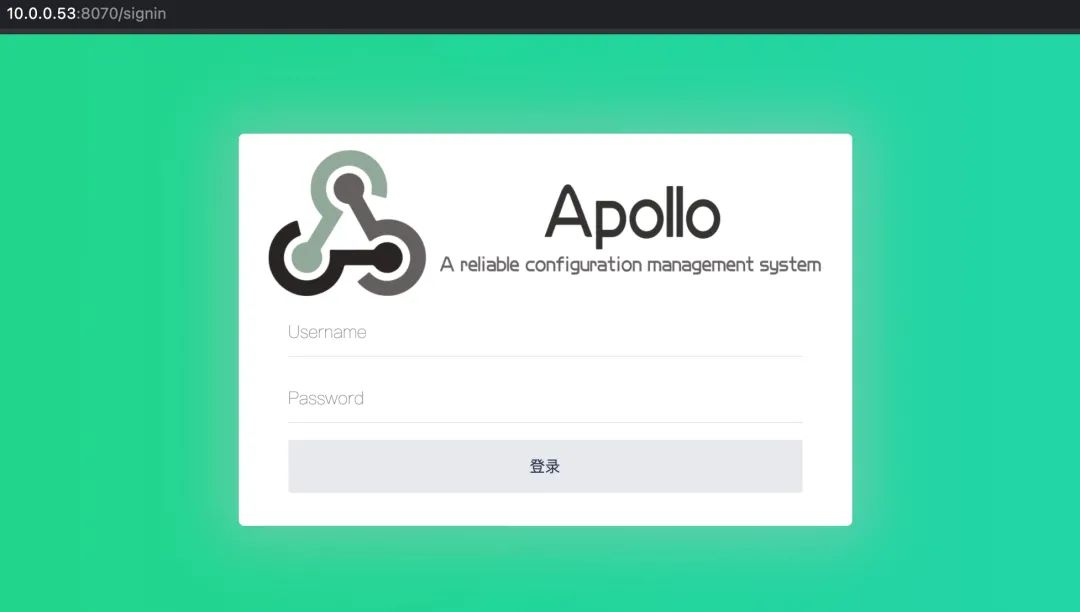
Default user name: apollo
Default password: admin
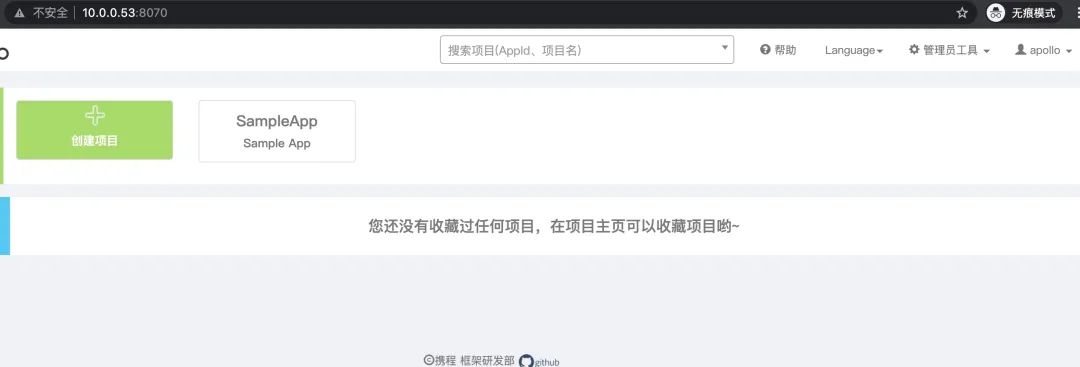
Create a test project
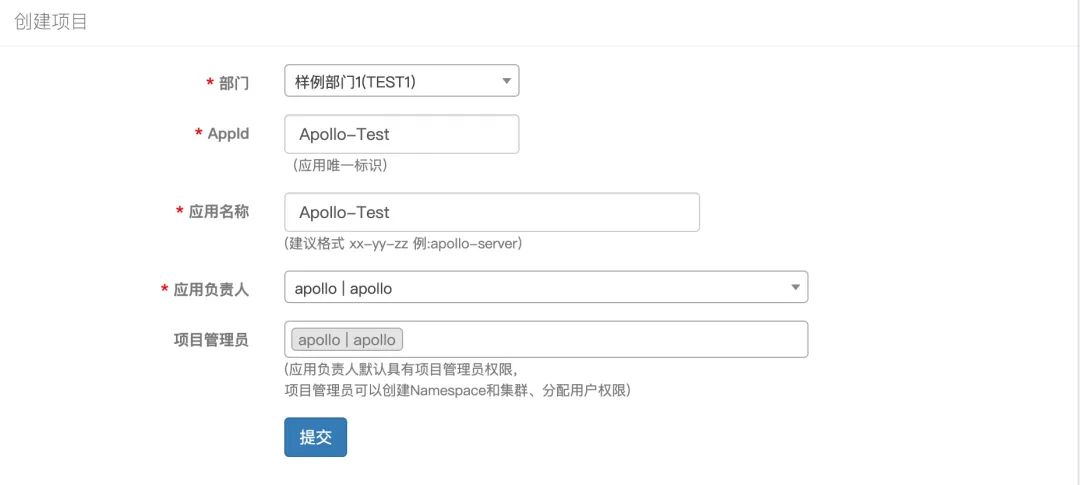
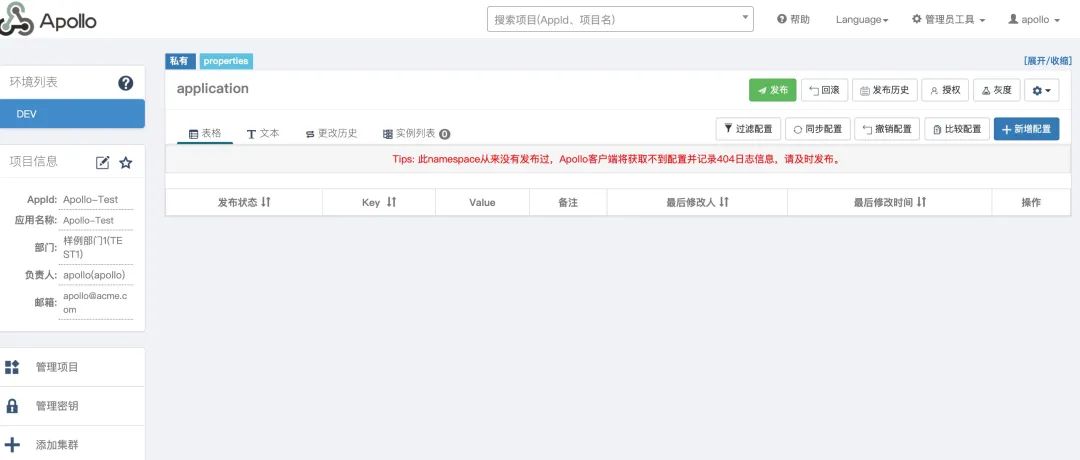
test
Create a. NetCore project and add Apollo.net client
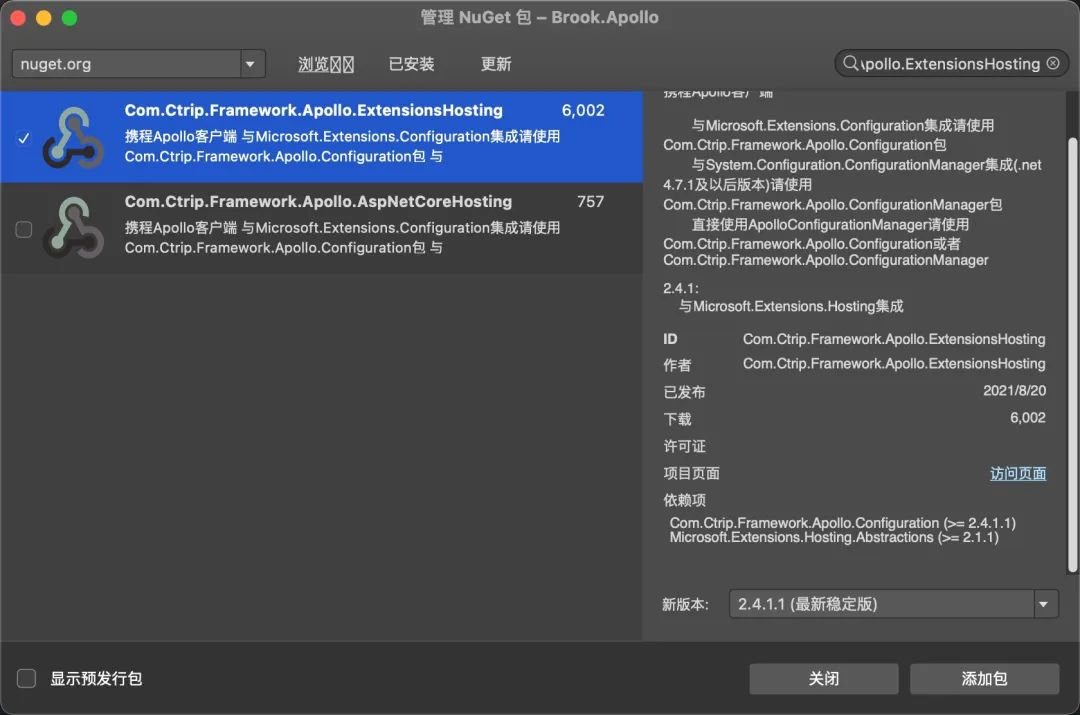
Add Apollo
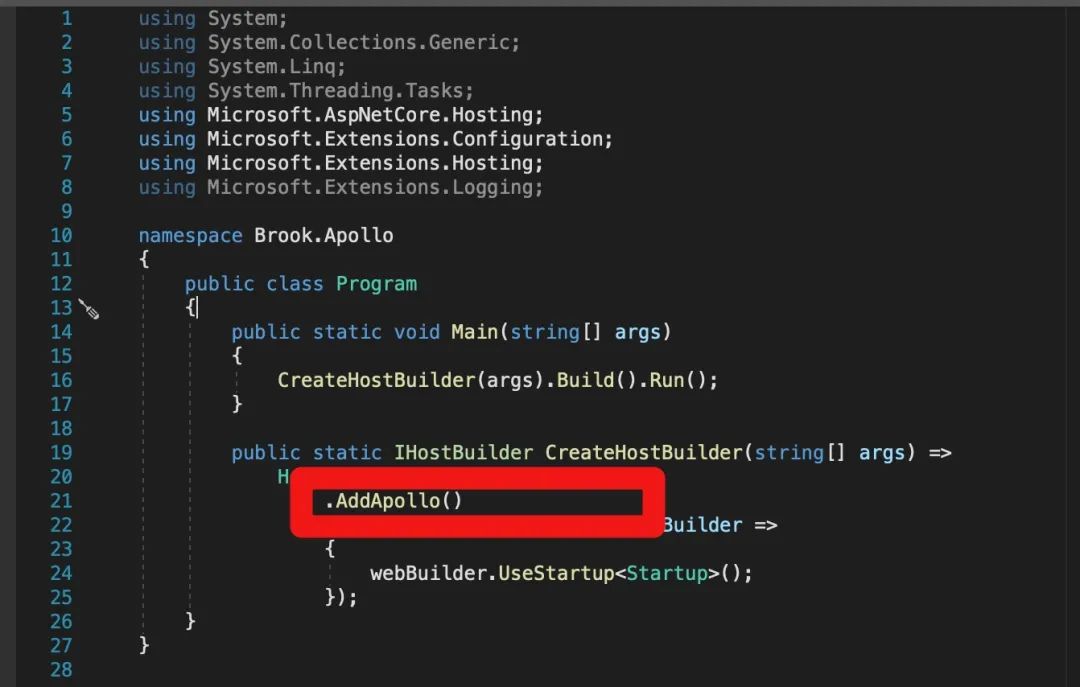
Configure Apollo
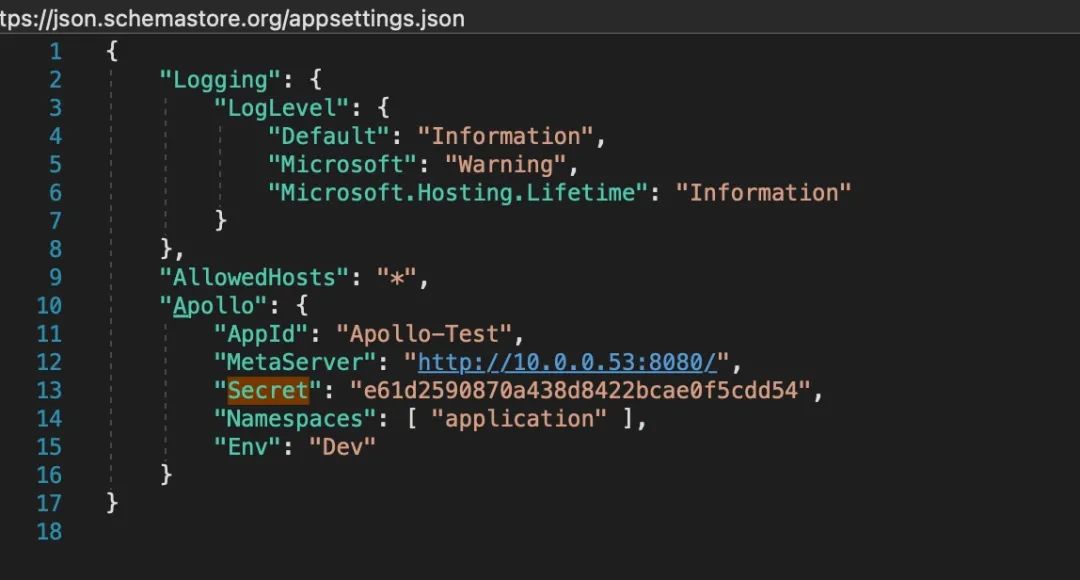
Configuration above
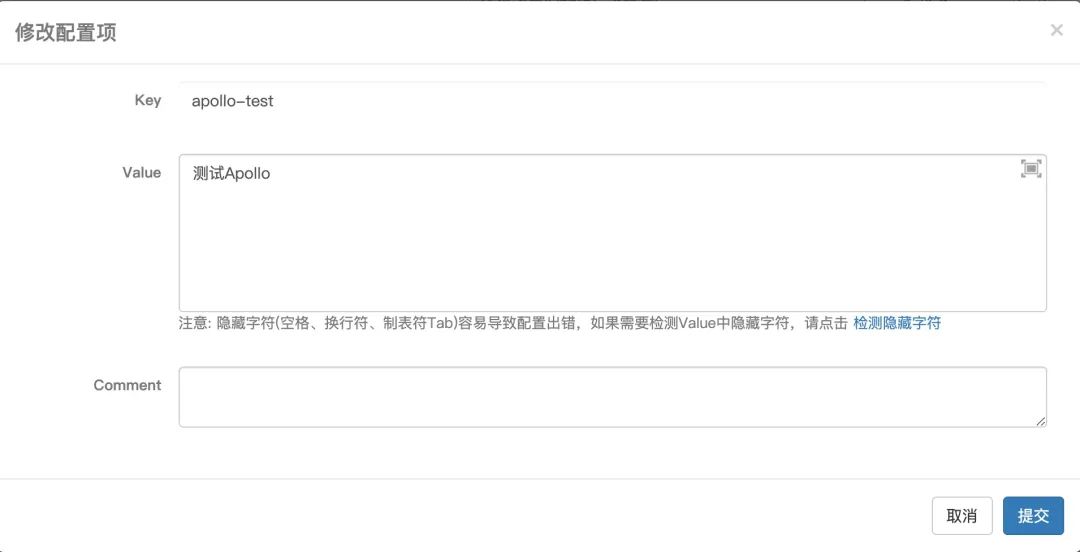
Add test content
Get Apollo in code
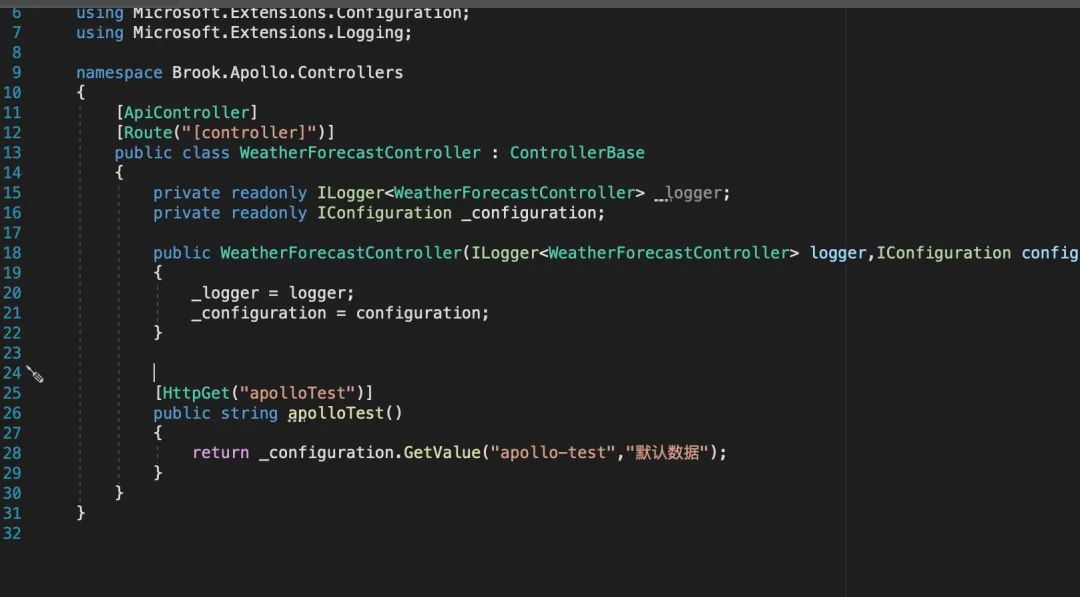
Initiator request / weatherforecast / Apollo test

It was found that the configuration set in apollo was not obtained
Check Apollo and find that the configured value is not published

So if you configure or modify Apollo, you must remember to publish it. After publishing, we refresh the browser again

It is found that the data is new. Let's modify the Value of Apollo again
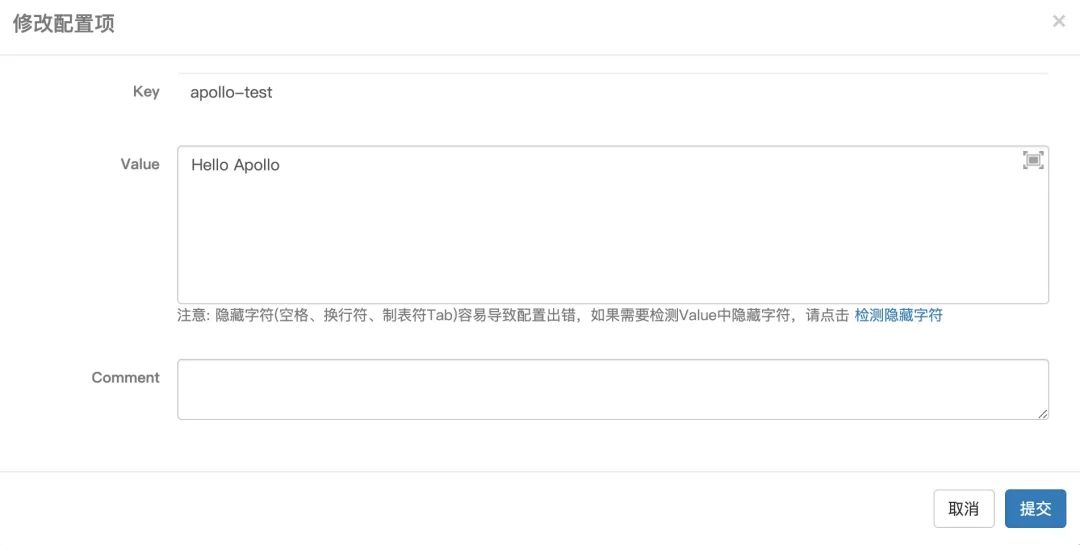
Refresh

To this end, Apollo has been built and can be used normally
code
The code in the example is
https://github.com/yuefengkai/Brook.Apollo
Welcome to Start
Note: if the configuration cannot be pulled after the program is started, you can open the Apollo log, see the detailed configuration in the console, and put it in the first line of the Program.cs Main function!
LogManager.UseConsoleLogging(Com.Ctrip.Framework.Apollo.Logging.LogLevel.Trace);
reference resources
1.https://github.com/apolloconfig/apollo.net
2.https://github.com/apolloconfig/apollo
3.https://github.com/apolloconfig/apollo/tree/master/scripts/docker-quick-start